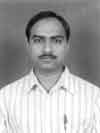Social surgery has been painful but worth it

Dr Vivek Kumar
Long ago Babasaheb Ambedkar lamented, "whatever I have been able to achieve for them (Dalits), I have done it single-handedly passing through crushing miseries and endless troubles in the midst of abuses hurled at me from all sides, more so from the Hindu Press." BSP leader Kanshi Ram abused the media as manuwadi. He said, "Dalits don't trust the upper caste media. To strengthen your movement, you must yourself become the media." Against this background, the completion of hundred columns of Dalit Diary in The Pioneer is a historical event.
The militant self-assertion of Dalits is a socio-political reality today. But for years, this assertion was just about taken note of in the mainstream Press. The media was half-hearted in its reportage of atrocities on Dalits. The community's positive achievements were never noticed. It is in this context that Dalit Diary becomes a milestone.
The insignificant status accorded to Dalits in the print media speaks volumes on the crises of character, competence, credibility and decadent culture of the elite. Thanks to this column, Dalits can question this culture and we hope others will follow it.
Dalit Diary has been successful in deconstructing and reconstructing social realities. Chandrabhan Prasad's articulation of these realities has surely broken stereotype images, built so meticulously by upper caste writers. He stands head and shoulders above those who write about Dalits sitting on the periphery.
It is true that Dalit Diary's journey has not been smooth. Only educated and conscious Dalits can understand the amount of opposition The Pioneer has faced within its fraternity for starting and continuing the aforesaid column. The so-called upholders of progress argued that The Pioneer was perpetuating the poison of casteism and hate.
Dalits are thankful to The Pioneer for understanding Indian reality and respecting the "perspective from below."
Catering to the intellectual needs of the emerging Dalit elite has been another contribution of this column. Further, it has created a regular readership among Dalits. Officers, professors, teachers and students wait for Sunday to read about their grievances.
The diary's contribution to the Dalit movement as a whole has also been vital. With each column, Dalit history is being recorded. It is true that Dalit history exists only in oral tradition and dies with each Dalit. Second, the column can also become a source of social change motivating Dalits to read their stories of trial and taking appropriate action.
It is also true that Prasad has been ruthless in criticising and evaluating the role of both the upper caste and Dalit elite. He takes self-criticism with the same passion and brings out the elements retarding the Dalit struggle. No write-up can be without any limitation and this column is no exception. Sentimental and sensitive issues related to Dalits and Indian society are part and parcel of this column. Hence one can raise a few questions about the degree of objectivity. It may be missing sometimes because of differences in perspective (insiders-outsiders). Second, there are so many issues related to Dalits that the author cannot cover them in his column. Even then, he has tried his best. Third, the tone of the column may have hurt many. But one has to understand that surgery is always painful and "social surgery" is no exception.